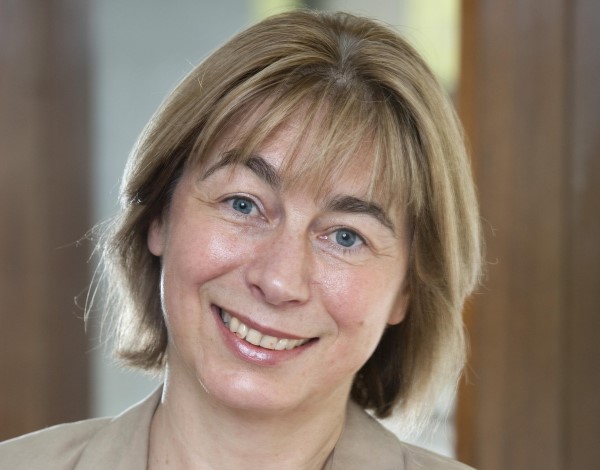Over a half of Russian native speakers live outside of Russia. Russian tourists and businessmen can be met in every country of the world now. How does the Russian language change in connection with it? Larissa Ryazanova-Clarke, Director of Princess Dashkova Russian Center told us about her research in the sphere.
We study the Russian language in the globalized world at the Princess Dashkova Russian Center; we are trying to find an answer to a question what does the globalized Russian look like? How do geographic remoteness from Russia and mobility of Russian speakers influence on the narratives of the Russian language? These topics are not in the research mainstream, but in my opinion, it is also a very important line of the modern science. I hope they will be capable of inspiring young scientists and post-graduates, who are now thinking of their thesis works.
Photo: research.ed.ac.uk
Much has been said and written about that the Russian language has lost in status for the last 25 years and that the amount of Russian-speaking people has decreased a lot. It is true, indeed. At least, it was true in 1990s. But it is not the full image of the situation. The trend connected with the Russian language is not linear and the globalization process, which is interrelation of the Russian language and the environment, also has the other side.
There are many factors, determining growth of the need to study Russian language, even abroad. What are the factors? For example, growth of different mobility types: tourism, and not only traditional country visiting during a vacation, but also a temporary visiting for studying purposes, student scientific exchange, practical trainings, joint business and even so-called medical tourism.
In many countries, where mobility of Russian-speaking people is growing, so-called commodification of the Russian language is taking place. Thus, the language is getting a new dimension – commercial value. Those, who speak it, get extra chances to get a job, improve business situation and an opportunity to get the biggest value as compared to those, who can’t provide services in Russian.
Commodification of the Russian language can be seen very well in Russia, when we are speaking about migrant groups, coming to Russia. Certainly, Russian language skills help them very much in finding a job.
Thanks to Russian-speaking tourists abroad (and not only them), the Russian language is emerging at the cities’ language landscape: in names and signs, advertisements and restaurant menus. Demand for Russian-speaking guides and firms is rising in the sphere of tourism, information materials, books and maps in Russian are printed. For example, there is a large department of Russian books in the biggest bookstore in England “Waterstone” in London. This is about the same process.
In some countries, Russian language is becoming an important service language, which is required in hotels, restaurants and shops. This trend is evident in the Baltic States, for example, in Finland and also in Turkey and Cyprus. This change in the language landscape – emergence of the Russian language in multi-language or in a foreign-language environment – is very important and it is something worth studying.
One more important scientific question connected with modern language processes – what does the Russian language corpus look like. What happens, when a language is spoken in different countries and different language cultures?
For instance, English has become very different because of migration, globalization and continents domestication. In science, such languages are called pluricentric or multi-polar. In such languages, the norm becomes multiple and unclear.
It often happens because of structural identity and increase of variability. It is interesting to see, if Russian language is becoming pluricentric. Is it going to become like American English, Australian English, Hong Kong English or British English, or is it never going to happen? It is a very interesting sphere and Russian should be studied in Moldova, Latvia, or in Hong Kong – everywhere, where there is a large Russian-speaking society.
And the last thing – this year, we conducted a research at the Princess Dashkova Russian Center about narratives of Russian tourism in Scotland. This project got a grant of the British Council for Humanities and we have almost finished it. However, it still has been not studied too much, how Russian-speaking people feel in the world, when they come to a new place.
However, tourism is a very interesting and old phenomenon – ancient pilgrims and Russian travelers of the eighteenth century travelled and it was a way of self-cognition, an attempt to find yourself.
Our research has shown that Russian-speaking tourists are now following the traditions of Russian tourists of eighteenth and nineteenth centuries and they are starting keeping a dialogue with the country they came to, including Scotland. Their impressions are very narrative and discursive and multi-layered Russian identity can be seen very well through this example. It is well expressed right at the moment when a tourist tells about himself and about how he perceives the world around.
(Extract from speech at X Assembly of the Russian World, Moscow, November 3, 2016)








